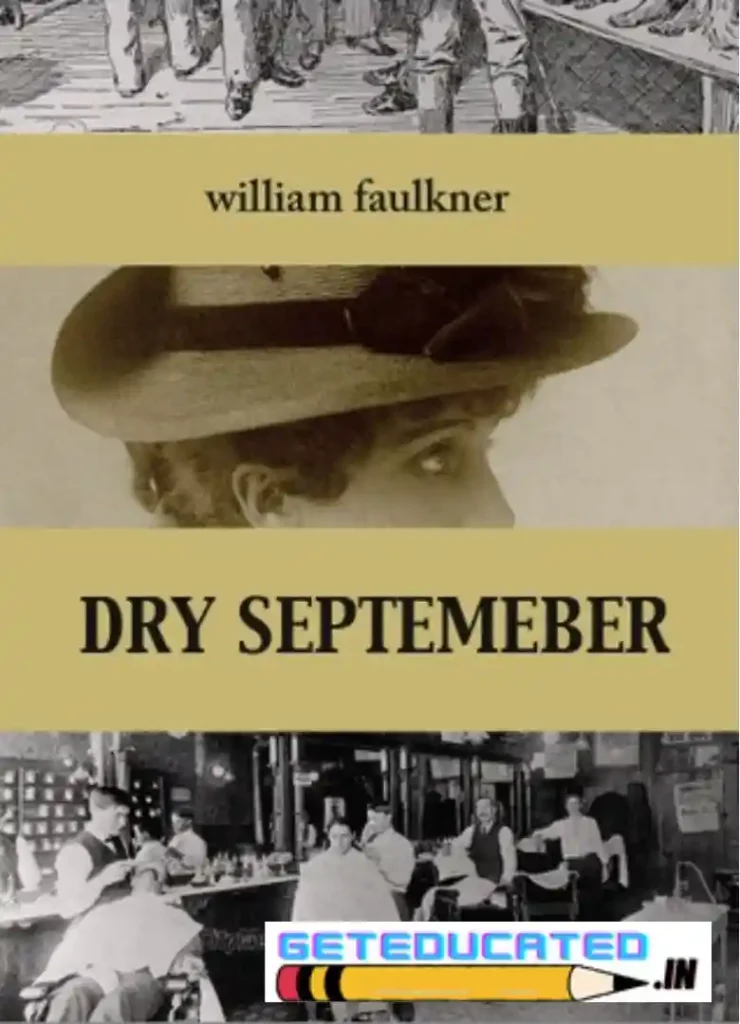
John McLendon is a major character in the short story “Dry September”. He is a military veteran who “had commanded troops at the front in France and had been decorated for valor”. John McLendon has a “thick head” and a “heavy-set body”, but when he keeps his feet apart, he has an easy poise. He has a “furious, rigid face” and a “hot, bold glance”. McLendon is described as wearing a felt hat and a white shirt “open at the throat”. He carries a heavy automatic pistol in his hip pocket.
A number of inner qualities can be drawn from McLendon’s outer characterisation. McLendon has a quick temper, which is also reflected by his “hot eyes”. He walks into the barber shop directly demanding punishment for Will, and he immediately becomes furious when Hawkshaw tells him to find out the truth before acting. He also gets angry when he arrives home and sees his wife waiting for him. He is a leader, a bully who instigates the crowd at the shop against Will Mayes with his speech and threatens those who do not comply to confront the “nigger”. He is so prejudiced that even when Hawkshaw try to convince him with reason, he retorts-“Happen? What the hell difference does it make? Are you going to let the black sons get away with it until one really does?” The mob is formed, and they venture out to teach Will Mayes a lesson. They arrive at Mayes’s workplace where he is working as a
night guard. McLendon doesn’t reason with Will and starts bashing him without allowing to justify himself. The brute, finally, avenges Miss Cooper by murdering the “rapist” Will Mayes. However, in sweats profusely which symbolically implies that his frustration is not ameliorated by his futile violence the final part we see him abusing his own wife. This irony is intentional by the writer which underscores the hypocrisy of men like McLendon. Further, after the final act he.
John McLendon is described as having commanded troops in France and is considered a war hero and man of action around Jefferson. There is no mention of his current occupation, and it appears that it does not matter much, as he is entirely defined by his wartime heroism. He lives in Jefferson with his wife, and while he is publicly viewed as a man of valor, within the walls of his home, McLendon is verbally and physically abusive with his wife, embodying the hypocrisy at the center of “Dry September.” McLendon bursts into the barber shop at the beginning of the story in order to recruit men to help him retaliate against Will Mayes for what he may or may not have done to Minnie Cooper. While some of the other men, including Henry Hawkshaw, suggest that they should gather facts and go to the authorities, McLendon questions their reputations as white men tasked with upholding the status quo. He gathers a mob of angry men and, with the gun he has tucked in his waistband, abducts Mayes and brings him to a secluded area to kill him.
The last part of the story is dedicated to the leader of the lynching mob, John McLendon who, up to that moment, was the only character in the story who seemed to live up to the ideal that he imposed to himself and to the others. Former war hero, decorated for courage, standing up for the women in town, clearly respected and even feared, according to the way in which he is obeyed, McLendon appears as the typical white middle-class Southerner who adheres to the myth of white supremacy, upholds the idea of “Southern pride” and lives his life according to a well-established and highly-honored code of behavior. Thus, his public image appears as the only one in which there is a coherence between reality and ideal. His private life, however, disagrees with his public attitude. Back at home, in his small white house, he finds a terrified wife who fears his gestures out of the experience of a long life of abuse. The man who posed as a defender of women is, in his own family, an abuser.
McLendon pulls off an extralegal operation, or a mock trial and sentencing. It’s also reenactment of war. Commander McLendon recruits his troops in the barbershop and then proceeds to wage war on Will, for the honor of white women in Jefferson. McLendon is, most likely, a murderer, and Will was probably not his first victim. McLendon seems practiced and systematic in carrying out his plan. He is chilling to the extreme, unwilling to listen to reason, and bent on keeping the black citizens of Jefferson in a state of fear. If that’s not enough, he abuses his wife, as we see in the final scene. There is absolutely nothing likeable about him, nothing to distract us from his dangerousness.
Yet, the final imagery of our villain “panting” “with his body pressed against the dusty screen”
somehow humanizes him (5.7). He’s a bully, a lonely broken man in a broken world, a man who hurts the people with whom he comes into contact. We have no sympathy for his crimes, or his perspective, but it seems that he too is a victim of his circumstances, that he too is trapped in roles he can’t or won’t escape.
